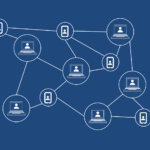In a first-of-its-kind study, a group of researchers identified the cell types and biological processes responsible for the genetic risk associated with insomnia. The results were achieved by assessing the sleep data and DNA of 1.3 million people.
Insomnia is a common sleep disorder affecting one in four Americans each year. Nearly 75 percent of sufferers recover without progressing to chronic insomnia, according to previous studies.
The majority of sufferers remain susceptible to disrupted sleep patterns, despite adequate treatments. The vulnerability to insomnia is genetic and rooted in the brain, and as of yet, researchers have only discovered a few genes linked to this vulnerability.
Researchers from the University of Amsterdam, in collaboration with the UK BioBank and 23andMe, set out to further study the effects of insomnia risk genes. For the study, they assembled DNA and sleep data of 1.3 million people. Of the data collected, researchers were able to spot 956 genes in which variants played a role in the risk of developing insomnia. From there, cell types, biological processes, and brain areas which utilized these genes were probed.
The team found that in the frontal cortex and the subcortical nuclei of the brain, particular cell types linked to the insomnia risk genes were said to be active. These brain regions were previously noted as areas of interest in brain imaging studies of insomnia sufferers.
“Our study shows that insomnia, like so many other neuropsychiatric disorders, is influenced by hundreds of genes of small effect. These genes by themselves are not that interesting to look at. What counts is their combined effect on the risk of insomnia. We investigated that with a new method that enabled us to identify specific types of brain cells, like the so-called medium spiny neurons,” the study found.
“These findings are a breakthrough, since we can now for the first time start searching for underlying mechanisms in individual brain cells in the laboratory,” said Guus Smit, a neurobiologist, and researcher.
Additionally, the study also uncovered a strong genetic similarity with depression and anxiety upon comparing risk genes of insomnia with other traits and psychiatric disorders.
“This study is an immense step forward in understanding the genetic background of insomnia. The findings emphasize that insomnia is a serious condition, because of the shared genetic risk of psychiatric disorders and metabolic disturbances involved in obesity and diabetes,” Vladimir Vacic, a California-based computational biologist, concluded.
The study appeared in the journal Nature Genetics.


